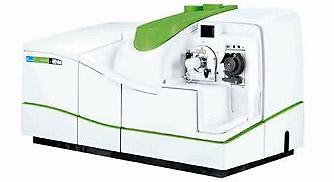 With the gradual maturity of mass spectrometry detection technology, mass spectrometry, as an important analytical instrument in the fields of food, environment, pharmaceuticals, toys and electronic products, will show explosive growth.
With the gradual maturity of mass spectrometry detection technology, mass spectrometry, as an important analytical instrument in the fields of food, environment, pharmaceuticals, toys and electronic products, will show explosive growth. According to data from multiple sources, the total sales volume of China's mass spectrometry products exceeds 6,000 units, of which the average annual growth rate of the global market is about 10%, while the annual growth rate of the domestic market exceeds 20%, although the instrument industry has emerged in recent years. "Cold currents," but the mass spectrometry field seems to be the industry's "outstanding." At the same time, the shortage of mass spectrometry personnel depends on the bottleneck that restricts the development of the industry. The following aspects will lead to the shortage of domestic mass spectrometry personnel in recent years.
The excellent qualitative and quantitative capabilities of mass spectrometry have led to many mass spectrometry instruments for analytical testing standards. Especially for government procurement, the demand for domestic instruments has been on the rise. More and more domestic manufacturers are involved in the development and production of mass spectrometry instruments. Since the east-west analysis of Beijing launched the first domestic commercial mass spectrometer in 2006, Jiangsu Tianrui, Concentration Technology, General Analysis, Guangzhou Xinxin, and Haoyu Hengpin have all launched mass spectrometry products, and some corporate plans have The research and development of mass spectrometry products was just not announced to the outside world. Therefore, there are no fewer than a dozen domestic companies involved in the development of mass spectrometry.
Most of the world's top 10 instrument companies are engaged in the production of mass spectrometry, so changes in large companies will inevitably lead to the flow of talent. First of all, in recent years, multinational corporations have withdrawn agency rights, leading to the loss of professionals in agency companies. In addition, multinational corporations have to recruit new talents in China, leading to a relatively large flow of talent; in 2012, the executives of multinational corporations resigned. Some core employees leave their jobs or start their own businesses.
The state attaches great importance to the mass spectrometry industry. Since 2011, the national major scientific instrument special projects have successively supported mass spectrometry projects, including the self-raising part of enterprises, and the total investment has exceeded 300 million yuan. The investment of these funds and policies will attract the flow of mass spectrometry personnel both at home and abroad.
Domestic professional instrument research and development and electronic optics talents appear faults. There are few instrument research and development majors in major universities and research institutes, leading to difficulties for various instrument companies. What is somewhat gratifying is that overseas students returning to China have formed. With the growth of market demand and the support of related policies, more new members will join in.
This is in contradiction with the current status of China's scarcity of MS-related talent. The instrument information network predicts that, starting in 2013, the demand for related talents for MS R&D and applications will increase, and this will also lead to the development of mass spectrometers for R&D personnel, especially The flow of core R&D personnel has increased.
Quaternary Ammonium Salt,Quaternary Ammonium Hydroxide,Quaternary Salt,Quaternary Ammonium Chloride
Jiangyin Lanyu Chemical Co.,Ltd. , https://www.jylanyu-chem.com